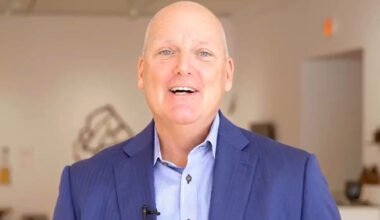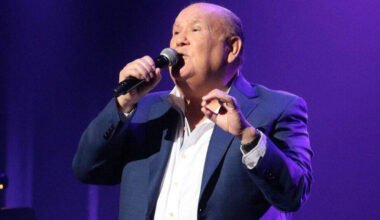Due to disclosures about his life, particularly his identity and influence on O.J. Simpson, Jimmy Lee Simpson is becoming well known. His story shows the complicated intersections of family, identity, and culture and has sparked discussions about LGBTQ+ histories in mainstream narratives. Jimmy Lee Simpson was a father, LGBTQ+ activist, and man of complex sexuality. This essay examines his life and legacy.
1. Early Life in Arkansas
In 1920, Jimmy Lee Simpson was born in Arkansas and raised in the south before moving to San Francisco. His Arkansas upbringing was undoubtedly affected by cultural and social conservatism, but moving to California gave him a more diversified and open-minded milieu.

2. The Move to San Francisco
By the mid-1940s, Simpson had moved to San Francisco, a city known for its thriving arts, culture, and LGBTQ+ communities. It was in this city that Simpson would come into his own as an important figure in the drag community. His relocation marked the beginning of a new chapter that would see him navigating multiple facets of life in a vibrant urban center.

3. Family Life and Marriage
Jimmy Lee Simpson and Eunice Durden had four children, including 1947-born O.J. Simpson. Though they stayed together for years, the couple’s relationship was difficult like many during this time. Their children were raised in a family that would become famous decades later.

4. Fatherhood and O.J. Simpson
As the father of O.J. Simpson, Jimmy Lee Simpson was a key figure in the early life of one of America’s most famous athletes. Although O.J. Simpson’s public life has often overshadowed his father’s, Jimmy Lee played an important role in shaping O.J.’s early years. While the exact nature of their relationship remains somewhat unclear, reports suggest that Jimmy Lee was a complicated and distant figure in O.J.’s life.

5. The Revelation of His Sexual Identity
In his later years, Jimmy Lee Simpson’s sexual identity became a topic of growing interest. Reports from the 1980s suggest that he came out as gay, and he was known for being involved in the drag community in San Francisco. This revelation, particularly in the context of the conservative environment in which he grew up, adds layers of complexity to his personal story.

6. Drag Queen in San Francisco
Jimmy Lee Simpson’s involvement in the San Francisco drag scene during the 1960s and 1970s was significant. He became a well-known figure in the city’s LGBTQ+ nightlife, performing under the name “Mama Simpson” and gaining a reputation for his flamboyant performances. His presence in this scene highlights the often-underrepresented role of Black men in early LGBTQ+ visibility and culture.

7. AIDS and His Untimely Death
In 1985, Jimmy Lee Simpson’s life came to an end after a prolonged battle with AIDS-related complications. His death was a significant moment in the history of the epidemic, which disproportionately affected the LGBTQ+ community, especially in the early years of the crisis. While some reports listed his cause of death as cancer, others, including author Jeffrey Toobin in The Run of His Life, stated that AIDS was the true cause of his passing.

8. The Legacy of AIDS Awareness
The death of Jimmy Lee Simpson in 1985 underscored the devastating impact of the AIDS epidemic, particularly within communities of color and the LGBTQ+ community. Simpson’s passing became part of the larger conversation around the early days of the epidemic, highlighting both the personal and collective tragedies of the time.

9. Uncovering His Story
While much of the focus on O.J. Simpson’s life has centered on his criminal trial and personal controversies, the story of his father, Jimmy Lee Simpson, has largely remained in the shadows. However, as more research and media attention have come to light, Jimmy Lee’s role as an LGBTQ+ figure and his complex family dynamics have emerged as important pieces of the Simpson family narrative.

10. O.J. Simpson’s Relationship with His Father
Despite the growing recognition of his father’s LGBTQ+ identity, O.J. Simpson has rarely spoken in depth about his father’s life. Many speculated that Jimmy Lee Simpson’s sexual identity may have caused a rift in their relationship, though O.J. himself has remained largely silent on the subject. The strained father-son relationship continues to be a topic of intrigue for both fans and critics alike.

11. The Intersection of Race and LGBTQ+ Identity
Jimmy Lee Simpson’s story is also a reflection of the intersectionality of race and LGBTQ+ identity. As a Black gay man in the mid-20th century, Simpson faced challenges that were unique to his cultural and racial background. His involvement in San Francisco’s drag community highlights the underrepresented role of Black LGBTQ+ individuals during this period, especially in areas like performance art and nightlife.

12. The Ongoing Conversation
The life of Jimmy Lee Simpson invites ongoing conversations about the hidden histories of marginalized communities. His story underscores the importance of recognizing LGBTQ+ histories in the broader cultural narrative and acknowledging the often-overlooked contributions of individuals like Simpson. As society continues to explore the complexities of identity, sexuality, and family dynamics, figures like Jimmy Lee Simpson will remain crucial to our understanding of the past.
In conclusion, the story of Jimmy Lee Simpson is far more than the father of O.J. Simpson. It is a story of resilience, identity, and the complex intersections of race, sexuality, and family life. As new details continue to emerge about his life, his legacy as a trailblazer in the LGBTQ+ community and as a father will continue to be remembered.

FAQ: Jimmy Lee Simpson

Who was Jimmy Lee Simpson?
Jimmy Lee Simpson was the father of O.J. Simpson, known for his complex life as a custodian, drag queen, and later in life, as an openly gay man. He was a significant figure in San Francisco’s LGBTQ+ community.

What was Jimmy Lee Simpson’s cause of death?
He passed away in 1985 from complications related to AIDS, though some initial reports listed cancer as the cause.

Was Jimmy Lee Simpson involved in the drag community?
Yes, he was a well-known drag queen in San Francisco, performing under the name “Mama Simpson” and contributing to the city’s vibrant LGBTQ+ nightlife scene.

How did O.J. Simpson feel about his father’s identity?
O.J. Simpson has rarely publicly discussed his father’s sexuality, and the relationship between them remains unclear.






